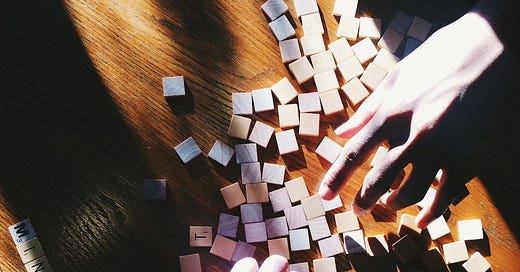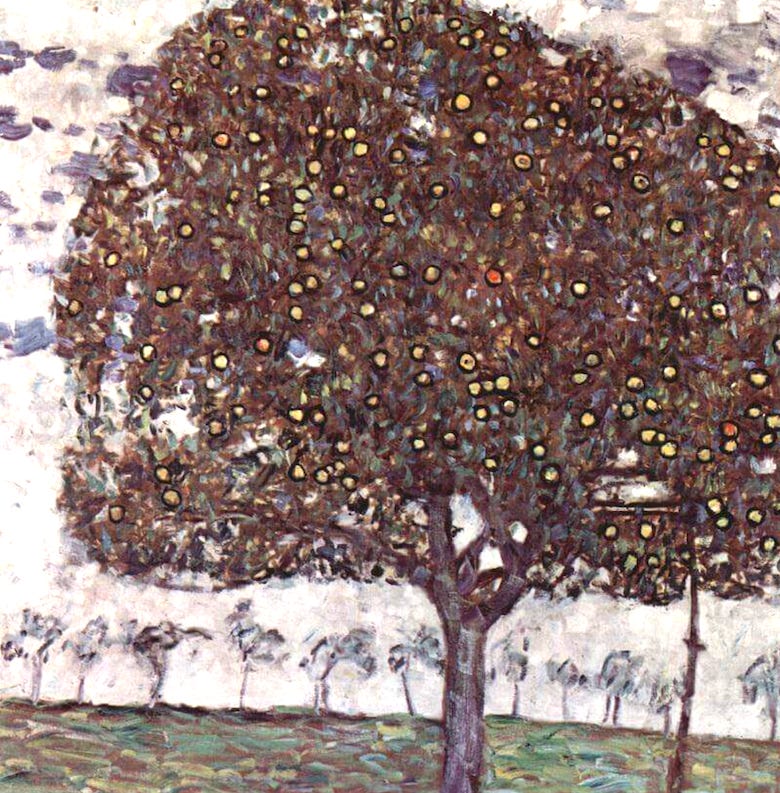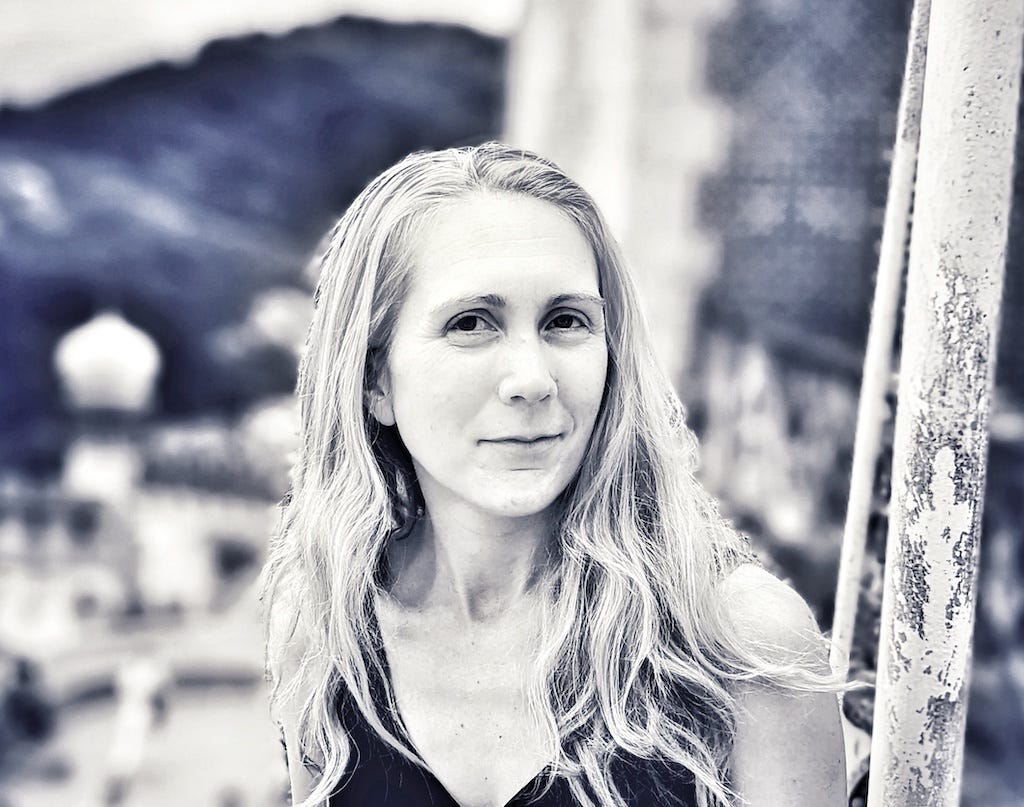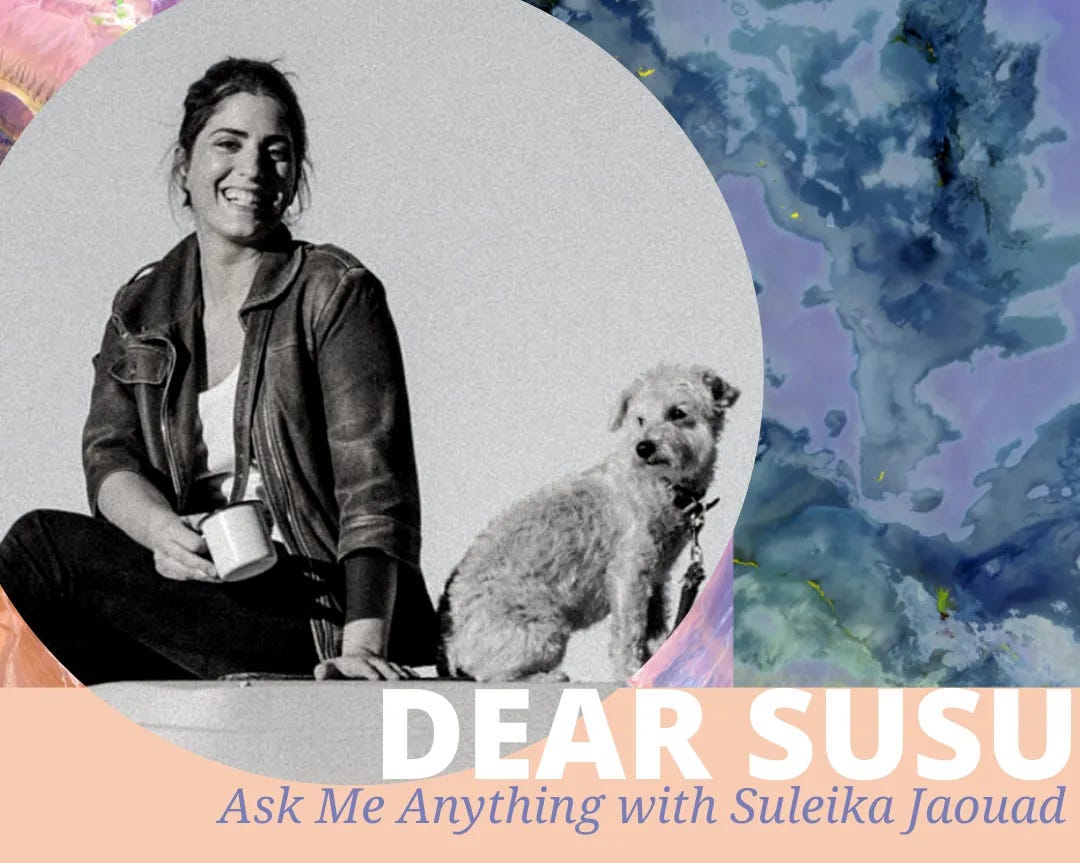Prompt 233. Words of Truth
& the poet Claire Wahmanholm on the basics of language
Hi friend,
A few months back, I got a question from a beloved community member (hi Pat!), asking how writers develop and expand their vocabularies. Immediately I was thrown back to childhood—to pulling volumes of the Oxford English Dictionary from the bottom shelf in my dad’s office and leafing through the pages. I wanted to know every word.
This was out of necessity at first, since I didn’t speak English when I started kindergarten. My mother tongue was French and my father’s tongue (meaning my second language) was Arabic, so growing up in the US, I always felt caught between worlds. For years, I kept a journal of American idioms and words that interested me, that sounded fascinating, words I didn’t understand, misspelled, or mispronounced in class (and hoped to never mispronounce again). To this day, Franglish is my preferred way of speaking. It feels so fluid—to use the word that comes to mind first, rather than batting down the French and groping around for the English, or vice versa. I think that’s one of the reasons I am so drawn to words: I’m often at a loss for them.
I find it happens with illness too. It’s so hard to describe what it’s like to be sick, to accurately pin down with language the body’s afflictions. You always feel like you’re coming up short, or not quite getting it right, whether it’s trying to describe pain on a scale of one to ten or simply communicating a need to a loved one. In my memoir Between Two Kingdoms, I write about my friend, the poet Max Ritvo, who died of Ewing sarcoma when he was just 25 years old. We met in the hospital and became instant friends, and besides illness, we found ourselves bonding over our love of writing and our shared taste in humor (pretty twisted). Whenever we were together, I always found myself jotting down things he said on pieces of paper and tucking them into my pockets—for example, when he said that losing his virginity in a hospital bed was like “having sex on a lumpy raft in the middle of a sea of antiseptic.” He had the most wonderful way with words, and in those moments when simple description proved inadequate, he’d conjure the perfect metaphor—often conveying the experience of illness not only precisely and vividly, but in a way that felt fresh and funny and true.
I spent time with some of Max’s poems this week. I was invited to read a few of them at Letters from Max, a Ritual, a play by the astonishing playwright Sarah Ruhl, who was Max’s teacher at Yale. Sitting with Max’s words, then lending my voice to them—it was heartbreaking of course, but it also lit a fire in me. It made me eager to continue my search for words that bring us a little closer to the truth.
That all brings me back to where I started, and the subject of today’s prompt: the dictionary. The poet Claire Wahmanholm has penned a brilliant essay and prompt called “Alphabet Poems” that returns us to the very basics of language. It shows us how words can root us, what they can teach us, and how, just maybe, they can make it all make sense.
A plus tard, alligator,
Suleika
A Quick Reminder—
We’ve scheduled our next meeting of the Hatch, our virtual creative hour for paid subscribers. It’ll be Sunday, March 19, from 1-2pm ET (click to add it to your calendar). For anyone looking for a pattern, that’s the third Sunday of the month! It’s our default, barring holidays or other unforeseen interferences.
Prompt 233. Alphabet Poems by Claire Wahmanholm
For the last six years, since my first daughter was born, I’ve been working on a series of alphabet poems. The very first books we read to her were abecedarians—you know the kind: A is for apple! B is for Bear! This is how we introduce children to the world. The more of them I read, the more I thought about what a “realistic” abecedarian might look like for this particular generation of children.
That’s how the sequence started, with my children in mind, but as it’s progressed, it’s become more and more a guidebook for me, living as a parent in our world. Much of my current work is in the eco-poetic tradition, and so several of these alphabet poems are about climate catastrophe and the more-than-human world, broadly writ. Others are about police brutality, gun violence, and war. Still others are about connection, motherhood, and choosing hope and survival. Writing these poems means sitting in attention with a wide range of emotions—terror, ecstasy, anxiety, longing, gratitude.
There are some kinds of poems that I write more or less out of my own imagination (whatever that means). Not these. With an alphabet poem, I begin by going through the Oxford English Dictionary and making a list of as many viable words that start with a given letter (usually it’s a couple hundred). Then I’ll step back and see what arises from that list: how those words talk to each other; what little webs they make; whether there are certain words that clump together semantically, sonically, or even visually. This often means that the worlds of astronomy and architecture will cohabit in the poem; the worlds of ornithology and mythology will share an ecosystem. It reminds me that you can make connections out of anything: there are far more ways to be alike than different.
When I first started writing these poems, they were fairly pithy, fewer than 200 words. But some in Meltwater, my newest collection, have swelled to almost 500 words, and because they’re prose poems, they look pretty imposing on the page. I sometimes picture them as chunks of soil, and the individual letters as roots running from the top to bottom of the poem, holding it all together.
I let them swell because I want to resist the soundbite, the “take,” the speed at which we are asked to digest information and then respond meaningfully to it. I want to slow down and insist on attention. I want to dive deep and let the exploration take as long as it needs to.
Your prompt for the week:
Pick a letter, either at random or one that resonates with you (the first letter of your name? last name?). Spend some time going through the dictionary, choosing the lushest, most interesting, most tangible words. Once you have a list of about 100, shape them into a poem. Let it take as long as it needs to.
For further reading:
Below are few of my alphabet poems, along with one by Asiya Wadud, written in the same vein. I’ve also included pieces by Harryette Mullen and Christian Bok, both of whom are letting the alphabet, and repetition, guide their work in playful ways.
“L,” by Asiya Wadud
“Any Lit,” by Harryette Mullen
Christian Bok’s Eunoia
Note: To browse an online dictionary, click here, then scroll to the bottom of the page.
If you’d like, you can post your response in the comments section, in our Facebook group, or on Instagram by tagging @theisolationjournals.
Today’s Contributor—
Claire Wahmanholm is the author of Wilder (Milkweed 2018), Redmouth (Tinderbox 2019), and most recently, Meltwater (Milkweed 2023). Her work has appeared in, or is forthcoming from, Cream City Review, TriQuarterly, Sierra, Ninth Letter, Blackbird, Washington Square Review, Copper Nickel, and Beloit Poetry Journal. She was a 2020-2021 McKnight Writing Fellow, and her poem “Glacier” won the 2022 Montreal International Poetry Prize. Find her online at clairewahmanholm.com, and pre-order Meltwater—which is out later this month—here.
For more paid subscriber benefits, see—
To Betray or Not to Betray, the latest installment of Dear Susu, where I answer the memoirist’s forever question: “How do I write my story without hurting the people I love?”
A Creative Heart-to-Heart, with my beloved husband Jon Batiste, where we tackle the community’s question about life and the creative process
Cultivating Seed Dreams, my reflection at Day 50 of last year’s 100-day project, where I wrote about the link between creativity and illness and began to map a path to realizing a dream
Have a question for Susu?
On the heels of my latest Dear Susu, I’m wondering—do you have a dilemma we can wade through together? About love? Illness? Work? Life? I’d love to hear from you. Just send an email to suleika@theisolationjournals.com with the subject line “Dear Susu.”
Include your query and any necessary context about yourself and your situation. If you wish to remain anonymous, that’s more than fine—just let me know or offer up a pseudonym. I can’t respond to every question individually, but I do read each one. And if I choose yours, I’ll answer as fully and thoughtfully as I can.














Oh my - what a delicious prompt! I opened the dictionary to E and what a treasure trove of possibility - here goes but I will want to tweak and refine and that will take time and tending but wanted to put my starting point out there. My Ode to E.
Ever eager to elicit exacting essence from existence.
Can I eke out the erstwhile exhilaration?
Is equilibrium enough?
Endless entrapment.
The eventual ease of eventide .
Sharing in a society of selflessness as opposed to selfishness would either make me soar or realize it’s just a symbolic sense of the dreamer within my soul.